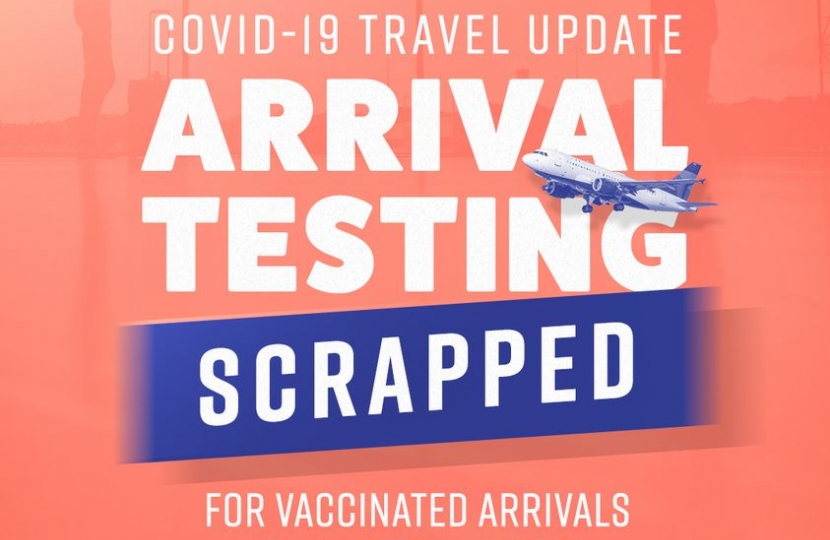
Thanks to the success of the UK’s vaccine and booster rollout, the government has announced that all testing measures for eligible fully vaccinated travellers arriving in the UK will be removed from 4am on 11 February.
Eligible fully vaccinated travellers will only need to fill out the passenger locator form (PLF), which is to be simplified, confirming their vaccination status, travel history and contact details, and people will have an extra day to fill it out before travelling.
The simplification of travel rules comes just before half term, providing welcome news for families looking to travel abroad during the school holidays, as well as an extra boost for the tourism industry.
For inward travel, all under-18s, regardless of their individual vaccination status, will continue to be considered as fully vaccinated.
Children aged 12-15 in England will be able to prove their vaccination status or proof of prior infection via a digital NHS COVID Pass from 3 February for outbound travel, making it easier for children and families to travel to countries which require proof of vaccination or prior infection to gain entry, avoid isolation, or access venues or services.
MP for North East Bedfordshire, Richard Fuller, said:
Thanks to the success of our vaccine and booster rollout, we are now able to open up travel to the world. So from 04:00 on 11 February, all testing requirements will be removed for fully vaccinated eligible arrivals, with only a simplified Passenger Locator Form required – saving around £100 for the average family going abroad and providing a major boost for UK tourism.
We already have one of the most open economies and free societies in Europe, and because of these changes, we now have a travel sector to match it.
One of the first western European countries to lift isolation requirements for all arrivals who do not qualify as fully vaccinated, the UK will also scale back travel restrictions for unvaccinated arrivals. From 11 February, individuals who are not fully vaccinated will only need to take a pre-departure test and a PCR test on or before day 2 after they arrive in the UK, as well as filling out the simplified PLF. They will not need to self-isolate on arrival, and will only need to do so on receipt of a positive result.
From 4am on 11 February, the UK will also recognise vaccine certificates from 16 further countries and territories at the border, including China and Mexico. This will bring the total list to over 180 countries and territories worldwide, and the full list of eligible countries and territories can be found on gov.uk.
While the red list will continue to remain in place as our first line of defence against future variants of concern arriving from abroad, the government is looking to replace the hotel quarantine policy with other contingency measures including home isolation and further details will be set out on this later in the spring.
Throughout the pandemic, the government has taken a balanced approach to COVID-19 measures, considering the freedoms of individuals together with public health concerns. Omicron is now the dominant variant of COVID-19 in the UK and around the world and the latest data indicates that vaccinated individuals are less likely to have severe outcomes if they catch Omicron, in comparison with Delta. Taken with the success of the booster programme, now is the right time to take proportionate steps to further remove travel restrictions.

